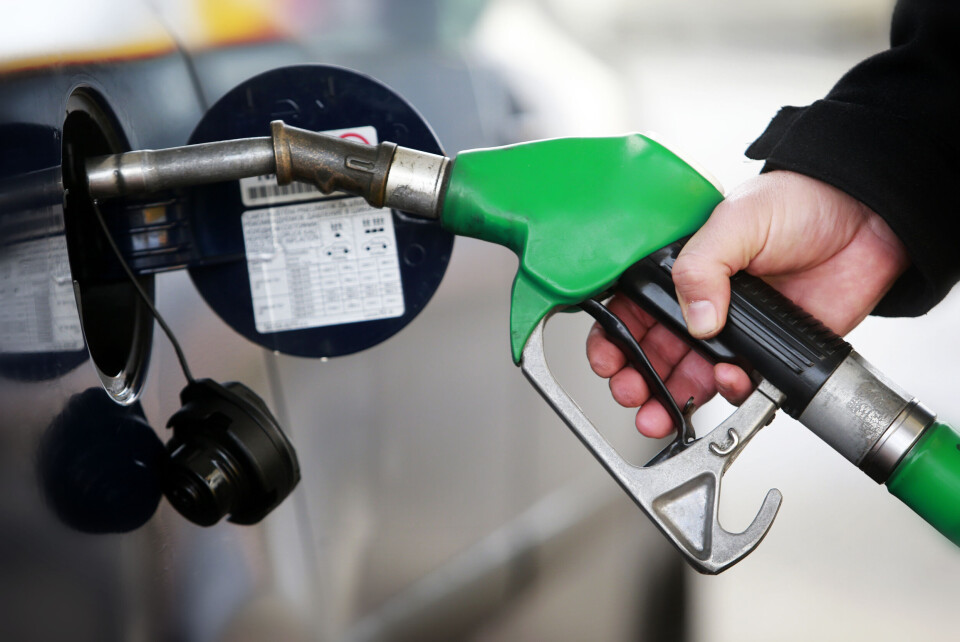-
Mysterious boom rattles residents in south-west France
Local community turns to social media for answers
-
France tightens reimbursement rules for flight delays or cancellations
New measures include mandatory mediation and new claim procedures
-
What snow conditions look like for skiers across French Alps and Pyrenees
Ski resorts are expected to get busier as school holidays begin this weekend
Fuel aid France: Around 10 million workers to get extra €100
Recipients will need to register, must not fall within the top tax bands and ‘swear on their honour’ that they use their vehicle for work

More than 10 million workers in France who need to use their vehicle for work are to receive a one-off cheque for €100 to help with fuel costs in 2023, after the existing rebates disappear.
Prime Minister Élisabeth Borne confirmed the €1.5billion measure this morning (December 7) on RTL.
The new fuel aid will be sent out after the current 10-cent-per-litre discount comes to an end on December 31. TotalEnergies’ 10-cent-per-litre discount is also set to end at the same time.
This means this new aid will be opened up from January 1, 2023.
Read more: How the French government fuel discount will change from September 1
How can people in France get the cheque?
To register your need for the cheque, you must log in to the usual government income tax website and follow the instructions to sign up.
You will need:
-
Your tax number
-
Your car licence plate number
-
To declare ‘on your honour’ that you need your vehicle for work or to commute
The aid will be available to those who fall within the first five tax bands in France, so the bottom half of households by income.
You will not be required to prove minimum kilometrage or journey times. Drivers of four-wheeled vehicles and of two-wheeled vehicles can apply.
If there are two adults both needing their vehicle for work in one household, they can both apply and may be eligible for €200 in aid.
Unemployed people who need their vehicles to look for work can ask for fuel aid at Pôle emploi job centres, said Ms Borne.
How much will the aid be and why?
The €100 amount “represents the amount of 10 cents per litre…based on the average driving distances of people in France”, said Ms Borne. This is calculated at 12,000 kilometres per year, she said.
The government is also asking employers to double their prime de transport contributions to employee transport costs from €200 to €400 per year.
Why has the aid come into force?
The government had already said that it would look to bring in more targeted aid packages for fuel, to curb the ‘whatever it costs’ mentality that had formed over Covid.
The International Monetary Fund (IMF) had warned the French government to stop with this approach, as debt is reaching record levels.
Read more: France promises ‘more targeted’ aid to help with rising fuel costs
The fuel aid of 18 cents per litre that began in April was eventually raised to 30 cents, as fuel costs continued to soar. This dropped to 10 cents by mid-November, and is set to disappear completely on January 1, 2023.
From that date, support will be targeted to ‘heavy users’ (gros rouleurs) who regularly rely on their vehicles for work.
And while €1.5billion is still a major cost, it is well below the €7.6billion that the fuel discounts have already cost.
What has the political response been?
Most have welcomed the measure, but there have been some words of criticism.
Olivier Faure, head of the Socialist Party (PS) said that it was a “welcome announcement” but reminded people that it “does not concern all French people”, excluding, for example, retired people.
He said: “We could have done this very differently”, such as by taxing companies making ‘superprofits’.
Similarly, the head of the PS group in the Assemblée nationale, Boris Vallaud, said that the measure was “just as well”, but that he would always “prefer to increase salaries rather than hand out cheques and payments”.
Related articles
Fuel, Prime de Noël, Covid: 9 December 2022 dates to note in France
‘Worker fuel allowance’ to benefit half of French households, PM says
























